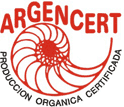BFA News letter : July
INDUSTRY NEWS:An Organic Standard for Australia: Industry at the crossroads - Are we asleep at the wheel
The following is the Executive Summary from a discussion paper produced for Biological Farmers of Australia (BFA) by Scott Kinnear, BFA Board member with input and endorsement from the BFA Board, July 2006 on the housing of Australia's national organic standard.
Executive Summary
Twice before, the organic industry in Australia has sought legislation to limit the use of the word organic in the marketplace, to “certified organic” products only. Despite our efforts, Government has preferred that we use systems of self regulation.
At the beginning of this year (and on behalf of the organic industry) the Organic Federation of Australia applied to Standards Australia to develop an organic standard. The OFA believed that this would reduce the fraudulent use of the word organic and be a good place to house our existing National Standard, given that AQIS has indicated it no longer wishes to be associated with this task indefinitely.
The BFA has a contrary view to the OFA, and is further concerned that not only is this application premature, but that there has not been sufficient assessment of the likely implications for the organic industry if a Standards Australia organic standard were developed and used. In particular, the loss of ownership and control are two key concerns. This paper has also addressed the indirect cost of an organic standard with Standards Australia, and believes this to be prohibitive for little or no return of value to the industry.
The BFA proposes that the organic industry revisits the option of a legislated control of the word organic within the Food Standards Code as administered by FSANZ. In addition we urge Standards Australia to put any further development of an organic standard on hold, pending detailed analysis with industry. Finally the OFA is asked to hold full and open discussions on all options for developing an organic standard and the pathway forward to control the word organic.
Readers are urged to visit the webpage with links to the full discussion paper and related documents.
AGRIBUSINESS NEWS:? Queensland Country Life trials organic market update
Queensland Country Life, which provides many producers in Northern NSW , Queensland and the Northern Territory with their staple weekly agricultural news, is trialling a monthly certified organic market update. Biological Farmers of Australia (BFA) is coordinating the update which will focus on the organic meat and livestock sector.
General Manager of BFA Michael Blakeney says “it is a measure of the industry’s maturity that the QCL can dedicate a page to news and events relating to the certified organic meat sector.
“BFA is proud to support this initiative and take a lead in highlighting the opportunities, challenges and successes of certified organic production,” he says. Michael thanked industry members who have committed to supporting the page.
The first update will appear two weeks time in Thursday’s paper on 27th July.
ENVIRONMENT:?Questionnaire for supporting new guide to biological inputs
In January this year Biological Farmers of Australia (BFA) formed the new BioNutrients Subcommittee to promote the principles, benefits and good practices of biological agriculture.
Biological agriculture is identified as farming practices that seek to improve soil health by minimizing chemical input and pursuing best practice while still maintaining yields and product quality.
The first major committee initiative is the development of guidebook for the safe and effective use of biological products.
Biological farm inputs cover a range of farm inputs that work with biological processes rather than against them. Examples of these products include mineral fertilizers, microbial stimulants, composts and seaweed based fertilizers.
The booklet entitled A Guide to Using Biological Inputsis intended to address what is seen as a lack of ‘best practice’ guidelines for the effective use of such inputs.
Graeme Sait, Chairman of the committee says “This is an important initiative with multiple benefits for users, suppliers, the community and the environment. The guidebook will offer pragmatic information about the nature and benefits of biological inputs, how to choose and use them and how to store and handle these products.”
To assist with the project, a 10 minute questionnaire has been developed for industry members to report back their experiences using biological inputs. The committee calls for the support of industry to provide the broadest base of data possible to draw from and supplement existing research.
The questionnaire may be downloaded from this link and returned to the committee to the contact details given in the document. For more information on the committee and projects, contact Graeme Sait via email to bio-nutrients@bfa.com.au or phone the BFA Head Office on 07 3350 5716.
HEALTH: Cancer patients recommended to eat organic
A recent survey by the Bristol Cancer Help Centre in the UKshowed an overwhelming 95 per cent of participants in? Bristol believed that healthy eating was an important part of their recovery.
The Bristol approach, which is based on the latest evidence, advises cancer patients to eat organically wherever possible.
Over a quarter of all deaths each year in Australia are due to caner with the biggest killers being lung, breast, bowel and prostate.
BFA nutritionist Shane Heaton says “there is a growing awareness, and indeed evidence, of a link between cancer incidence and the pollutants, pesticides and chemicals in our environment.”
“While regulators and the agrochemical industry dispute any link between pesticides and cancer, one thing is clear: prevention remains a far better option than cure, and consumers who want to minimise their pesticide exposure can do so with confidence by buy organically produced foods.
“Organic food represents an important safe haven in an increasingly polluted world. It’s not the only way to reduce your risk of getting cancer, but it’s a good place to start."
Shane Heaton has written an article detailing the role of organics in cancer prevention which will be published in the Spring edition of Australian Organic Journal available 1st September.
Reference sources:
Read the article in the Daily Telegraph (10
July)
Bristol Cancer Help Centre (click
"Downloads" for healthy-eating guidelines)
GOOD TASTE:
Recipe: Sweet Seduction
The following recipe for sweet scones is taken from the Ozganics website www.ozganics.com.au.
Ingredients:
300ml organic cream
300ml water
1 tbsp icing sugar
4 cups organic self-raising flour
(You can mix 1 cup of dried fruit through this recipe if you desire)
Method:
Preheat oven to 250 C. Place flour and sugar in mixing bowl (if using dried fruit, mix it in with the flour) and mix thoroughly.
Mix water and cream then add to flour. Blend with dry ingredients until combined.
Turn dough out onto a floured board and gently press out dough until approx. 2.5cms thick. Cut into scone rounds.
Place scones on a lightly floured tray. Cook in 250 C oven for 10-15 minutes.
Place scones on plate and top with delicious Ozganics Strawberry Spread. Finish with a generous pouring of cream.
Your Organic Advantage
Editors: Holly Vyner, Dom O'Brien
BIOLOGICAL FARMERS OF AUSTRALIA CO OP LTD - THE VOICE OF ORGANICS
http://www.bfa.com.au/
Ph: 07 3350 5716 (International +61 7 3350 5716)
AUSTRALIAN CERTIFIED ORGANIC PTY LTD - THE STANDARD IN ORGANICS
http://www.australianorganic.com.au/
Ph: 07 3350 5706 (International +61 7 3350 5706)
















